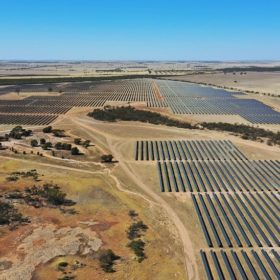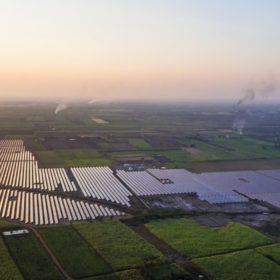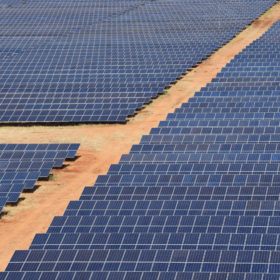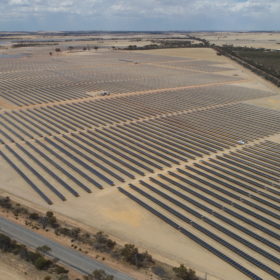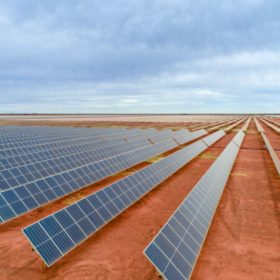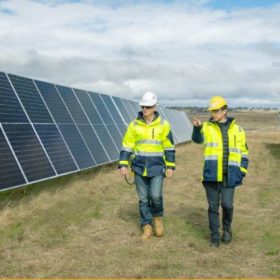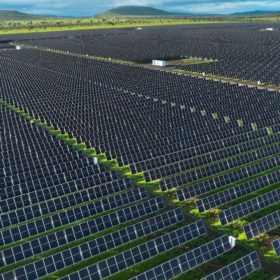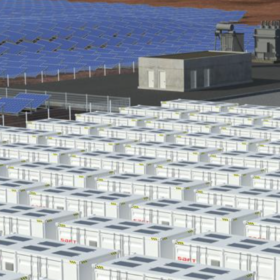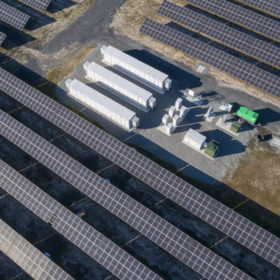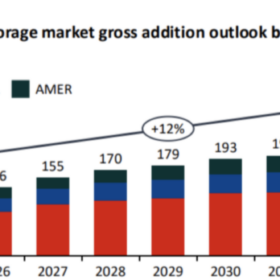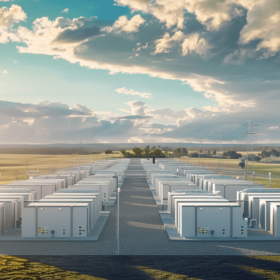Merredin Solar Farm scores repeat in PV performance rankings
Indonesian PV developer SUN Energy’s 100 MW Merredin Solar Farm in Western Australia has topped international consultancy firm Rystad Energy’s list of Australia’s best performing large-scale solar assets for the second consecutive year.
Amp Energy to build 200 MW hybrid wind solar plant in India
Amp Energy has agreed to set up a 200 MW wind-solar plant on a build-own-operate basis. It will sell the generated electricity to Solar Energy Corp. of India.
Vertical agrivoltaic pilots in France find improved yields and less water stress
French energy giant TotalEnergies studied the impact of solar panels on crops in order to develop a repository of agronomic benefits. The initial results show an increase in agricultural yields on field crops and a reduction in water stress.
India installed almost 14 GW of solar in 2022
India installed 13,956 MW of solar between January and December 2022. This included 11.3 GW of utility-scale PV, about 1.9 GW of rooftop solar, and nearly 700 MW of off-grid/distributed capacity.
Risen Energy is taking n-type HJT technology mainstream in Australia
Following Risen Energy’s January announcement that the company is starting to mass-produce its n-type heterojunction technology (HJT) hyper-ion solar modules, it has revealed plans to increase production capacity to 15 GW by the end of 2023. Archie Chen, CEO of Risen Energy Australia, says n-type HJT panels will prove the favoured technology over the coming years, facilitating higher performing solar solutions.
Governments upbeat about Sun Cable project despite financing feud
The Northern Territory government remains upbeat about the future of the $30 billion-plus (USD 20.7 billion) Australia-Asia PowerLink project despite the company behind what would be the world’s biggest solar and energy storage project having abruptly entered voluntary administration.
ACEN Australia plans to accelerate rollout of renewables portfolio
Philippines-based energy company ACEN Corporation plans to capitalise on Australia’s “unparalleled renewables potential” after securing a $277 million (USD 191 million) loan facility which it says will be accelerate the delivery of an 8 GW clean energy portfolio that includes solar, wind, battery storage and pumped hydro.
Mytilineos advances Australian solar ambitions with major finance package
A 110 MWp Queensland solar farm that is fully constructed and currently undergoing hold-point testing is one of a trio of PV assets that Greece-based industrial conglomerate Mytilineos has secured finance for as it looks to further establish its position in the Australian renewable energy market.
Contract awarded for New Zealand’s first big battery
New Zealand is set to have its first big battery by 2024, after Meridian Energy awarded a contract to build the 100 MW / 200 MWh Ruakākā Battery Energy Storage System to Saft, a subsidiary of TotalEnergies.
Four global trends in solar and storage in 2023
A review of recent solar and storage related trends as seen by IHS Markit.
